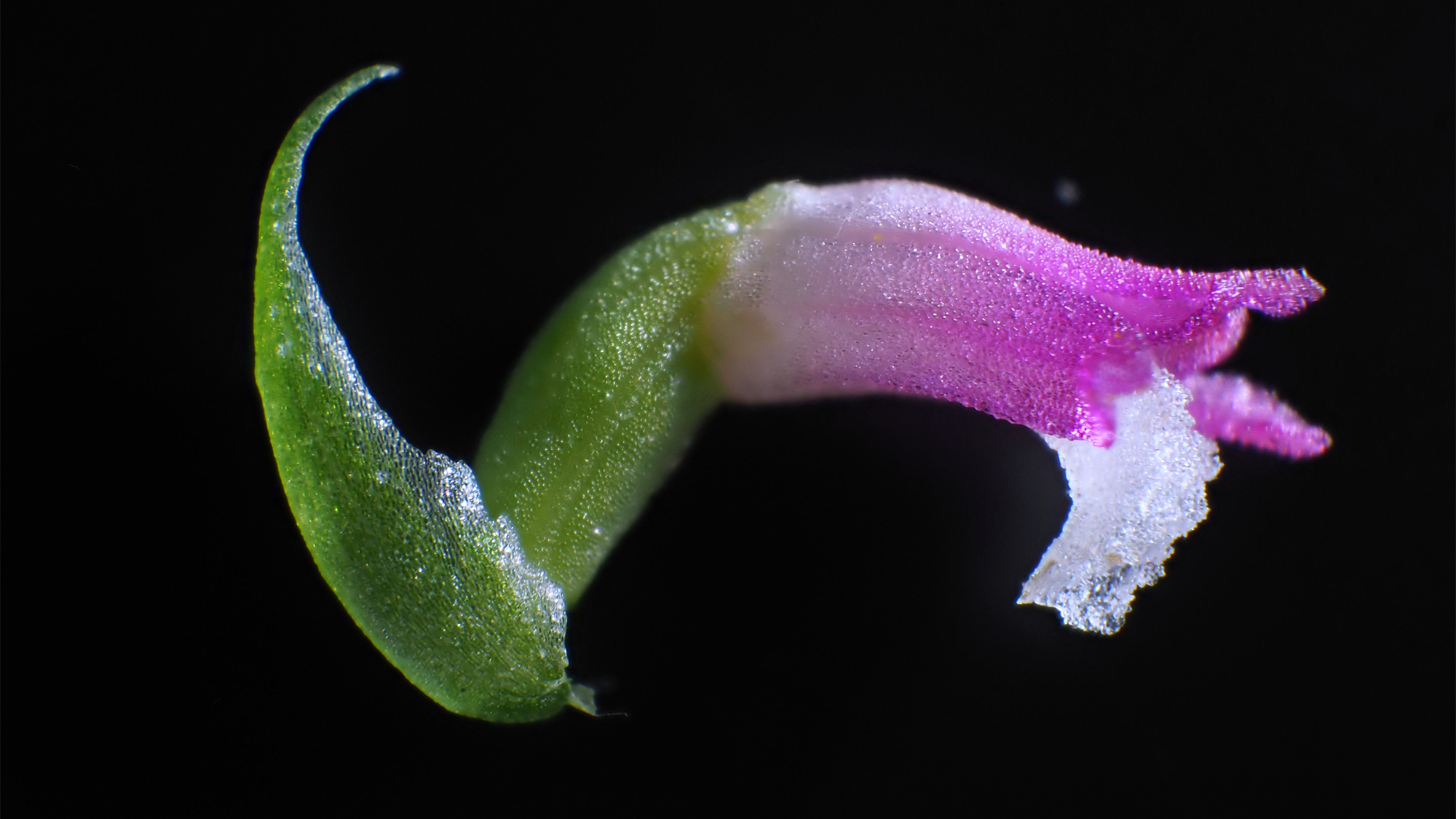

Around a decade ago, Kobe University biologist Kenji Suetsugu took a research trip to Japan’s Chiba Prefecture on the eastern outskirts of Tokyo. While there, pops of vivid colored flowers rising out from the green and brown grassland caught his eye.
“Its vibrant colors immediately caught my attention. I remember being struck by its unique rosy pink petals that bear a striking resemblance to glasswork,” Suetsugu tells PopSci in an email.
[Related: This incredibly rare orchid survives by making male beetles horny.]
What he saw was actually an undiscovered species of orchid, a rarity in a country whose plant species have been extensively studied and classified. The discovery of the delicate, elegant, pink-petaled Spiranthes hachijoensis (S. hachijoensis) is detailed in a new study co-authored by Suetsugu and published on March 17 in the Journal of Plant Science.
S. hachijoensis is actually found in many common places in Japan like parks, lawns, and gardens, but the striking plant was not named. Scientists believed that all the Spiranthes on the Japanese mainland were actually one species. The blooms of S. hachijoensis are pink, purple, and white and its petals are about 0.1 to 0.2 inches long.
Additional specimens have been collected in Japan and as far away as Taiwan and Laos. “After collecting some samples, we took the flowers back to the laboratory and dissected them. We noticed that the morphology was different from other plants we had studied,” Suetsugu explains.

They analyzed the samples DNA and reproductive biology and found that this cryptic species had genetic differences from other orchids in the genus at the molecular level. S. hachijoensis has a smooth stem instead of the typically hairy stem of another lookalike species named Spiranthes australis. While the new species grows alongside S. australis, it blooms about a month later, leading to reproductive isolation between the two distinct plant species.
The orchid species that make up the Spiranthes genus are commonly called ladies’ tresses, due to their resemblance to locks of hair. Their dainty, bell shaped flowers bloom in a variety of colors from yellow to purple to pink or white, and are typically grown from a hairy central stem in a spiral. There are roughly 50 Spiranthes found in tropical or temperate regions of North and South America, Eurasia, and Australia. According to Suetsugu, Spiranthes have been known to Japan for centuries and is the country’s most familiar orchid. It is even featured in Manyoshu, or “Collection of Ten Thousand Leaves,” Japan’s oldest anthology of poetry dating back to 750 CE.
[Related: How a peculiar parasitic plant relies on a rare Japanese rabbit.]
The team will continue to keep studying S. hachijoensis to better understand its DNA, ecology, evolutionary history, and conservation status. While orchids are a very prolific plant with roughly 28,000 known species around the world, habitat loss has endangered the beautiful and ephemeral flowers.
“Discovering a new species is not only exciting, but also important for our understanding of biodiversity and for conservation efforts,” says Suetsugu. “The discovery of this new species hiding in mundane places demonstrates the need for persistent exploration even in seemingly unremarkable places. I think it’s a discovery that reminds us that there is still an unknown world in nature that we come into contact with on a daily basis.”
